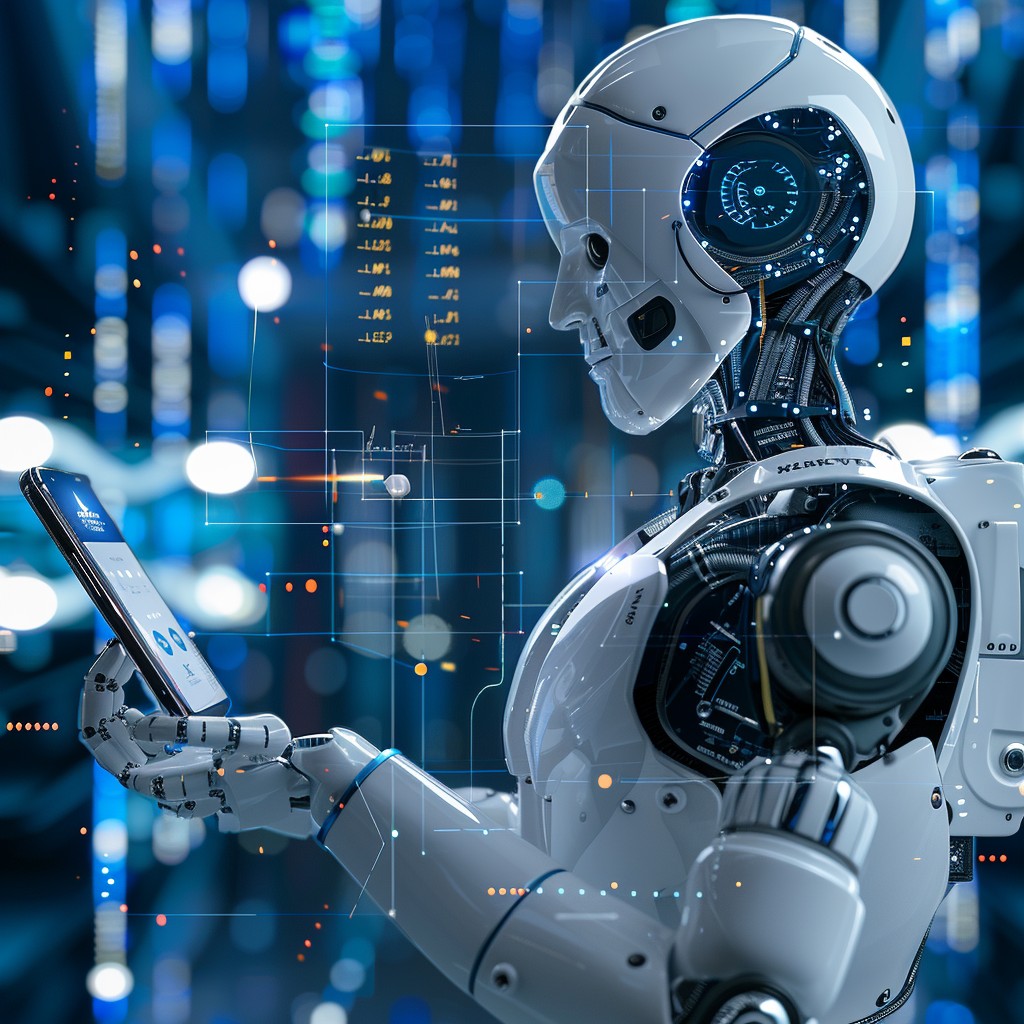How AI is Revolutionizing Industries: A Deep Dive into Key Sectors
Artificial Intelligence (AI) is no longer a futuristic concept; it’s a transformative force that’s reshaping industries around the globe. From healthcare and finance to retail and automotive, AI is driving innovation, improving efficiency, and enabling companies to solve complex challenges. In this blog post, we’ll explore how AI is revolutionizing four key sectors and what the future holds for each.
1. Healthcare: AI as a Catalyst for Precision Medicine and Improved Care
In healthcare, AI is rapidly advancing the way medical professionals diagnose diseases, develop treatments, and deliver patient care. The potential of AI in this sector is enormous, with applications ranging from predictive analytics to personalized medicine.
- Medical Imaging and Diagnostics: AI-powered tools are revolutionizing medical imaging by enabling faster and more accurate diagnoses. For example, AI algorithms can analyze X-rays, MRIs, and CT scans to detect anomalies such as tumors, fractures, or other conditions that may be missed by the human eye. This not only speeds up diagnosis but also enhances accuracy, leading to better patient outcomes.
- Drug Discovery: AI is being used to accelerate drug discovery by analyzing vast amounts of data to predict which compounds might be effective against certain diseases. Companies like Insilico Medicine and BenevolentAI are using AI to streamline the drug discovery process, reducing the time and cost associated with developing new treatments.
- Personalized Medicine: AI helps in personalizing treatment plans by analyzing patient data, including genetic information, to tailor therapies to individual needs. This approach, known as precision medicine, ensures that patients receive treatments that are more effective for their specific condition.
- Predictive Analytics: AI-driven predictive analytics can anticipate patient needs, such as identifying those at risk of developing chronic conditions. This allows healthcare providers to intervene early, preventing complications and reducing healthcare costs.
2. Finance: AI Enhancing Efficiency and Security in Financial Services
In the finance sector, AI is revolutionizing how institutions manage data, detect fraud, and enhance customer experiences. From robo-advisors to automated fraud detection, AI is streamlining processes and making financial services more secure and accessible.
- Fraud Detection and Prevention: AI is crucial in identifying fraudulent transactions by analyzing patterns and flagging suspicious activities. Machine learning algorithms can detect anomalies in real-time, reducing the risk of fraud and protecting both consumers and financial institutions.
- Algorithmic Trading: AI is reshaping stock trading through algorithmic trading systems that analyze market data and execute trades at optimal times. These AI-driven systems are designed to minimize risk and maximize returns by making split-second decisions that human traders cannot.
- Robo-Advisors: AI-powered robo-advisors are transforming wealth management by offering personalized investment advice at a fraction of the cost of traditional financial advisors. These platforms use algorithms to create customized investment portfolios based on an individual’s financial goals, risk tolerance, and other factors.
- Customer Service: AI chatbots and virtual assistants are improving customer service in banking by providing instant responses to customer inquiries, handling transactions, and resolving issues without human intervention. This not only enhances customer experience but also reduces operational costs.
3. Retail: AI Personalizing the Shopping Experience
The retail industry is leveraging AI to revolutionize the shopping experience, from personalized recommendations to inventory management and customer service. AI is helping retailers better understand their customers and optimize their operations for maximum efficiency.
- Personalized Recommendations: AI algorithms analyze customer behavior, preferences, and purchase history to deliver personalized product recommendations. This level of personalization increases customer satisfaction and boosts sales by showcasing products that are most relevant to each individual shopper.
- Inventory Management: AI is enhancing inventory management by predicting demand, optimizing stock levels, and automating restocking processes. Retailers like Walmart and Amazon use AI-powered systems to ensure that the right products are available at the right time, reducing the risk of overstocking or stockouts.
- Visual Search: AI-driven visual search tools allow customers to find products using images instead of keywords. For example, platforms like Pinterest and Amazon use visual search technology to help users find similar products to those they’ve seen online or in real life.
- AI Chatbots: In the retail sector, AI-powered chatbots are improving customer service by answering common questions, guiding customers through the purchase process, and providing support 24/7. These chatbots help retailers handle high volumes of inquiries while delivering consistent service.
4. Automotive: AI Paving the Way for Autonomous Driving and Smart Vehicles
AI is transforming the automotive industry in ways that were once considered science fiction. From autonomous vehicles to predictive maintenance, AI is driving innovation in the design, manufacturing, and operation of cars.
- Autonomous Vehicles: AI is at the core of self-driving cars, enabling vehicles to perceive their environment, make decisions, and navigate roads without human input. Companies like Tesla, Waymo, and Uber are leading the charge in developing autonomous vehicles that are safer and more efficient than traditional cars.
- Predictive Maintenance: AI is being used to predict when a vehicle will require maintenance or repairs based on data collected from sensors. This allows manufacturers and owners to address issues before they become serious problems, reducing downtime and repair costs.
- Advanced Driver Assistance Systems (ADAS): AI-powered systems like lane-keeping assistance, adaptive cruise control, and collision avoidance are making driving safer and more convenient. These technologies use AI to analyze real-time data from cameras, sensors, and GPS to assist drivers and prevent accidents.
- Smart Manufacturing: AI is also improving the manufacturing process by optimizing production lines, reducing waste, and increasing efficiency. Automotive manufacturers use AI-powered robots and machine learning algorithms to streamline assembly processes, ensuring higher quality and faster production.
Conclusion: The AI Revolution is Here
AI is no longer just a buzzword—it’s a transformative technology that’s reshaping industries across the globe. From healthcare to finance, retail, and automotive, AI is driving innovation, improving efficiency, and unlocking new possibilities. As AI continues to evolve, we can expect even more groundbreaking advancements that will redefine the way we live, work, and interact with technology.







Leave a Reply